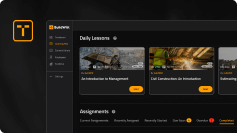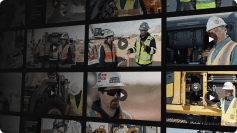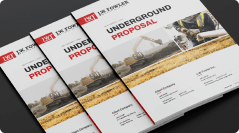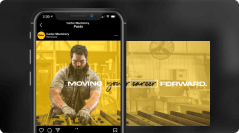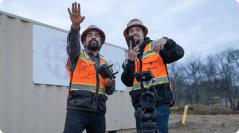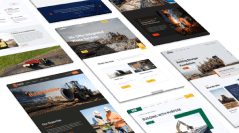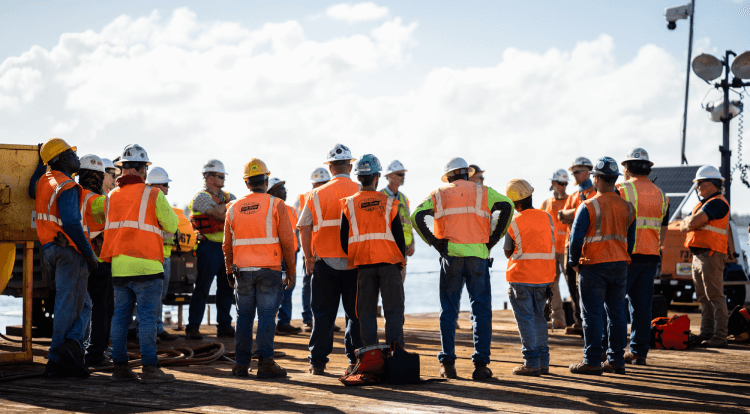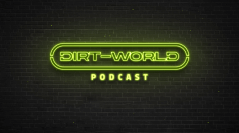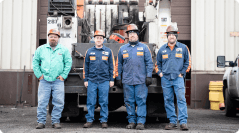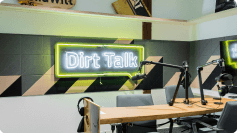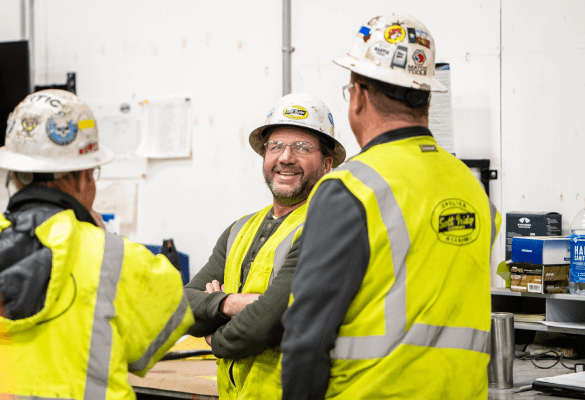The ROI on Renting vs. Buying Equipment
Written by Randy Blount
January 26, 2023
Most people in construction would agree: Equipment is fun. It can be big and powerful. Whether it's an excavator, bulldozer, scraper, or motor grader, this equipment is, in a word, cool.
However, as Randy Blount says, "I think—because it's cool—you have to recognize and remember, we like to own big equipment and we like to own equipment because it's cool. And don't let that be the decision maker."
Instead, keep your desires in check and learn to analyze the cost of equipment.
Making the rent vs. buy decision
First, ask: What is the rationale for owning a piece of Dirt World equipment? Then consider the true costs and uses of the equipment.
When you're assessing equipment costs, it's important to look at:
- How much will it cost to purchase (or rent)?
- How much will it cost to operate and maintain?
- How often will you use the equipment?
- If you own it, what'll you do with the equipment when it's not in use?
- If you rent it, are you in a line of work that's hard on equipment, and if so, will the rental company charge fees for extra repairs?
Some companies are quick to point out that they pay cash for equipment—which may be great, but depreciation is still a cost to consider.
Rather than simply reacting to a shiny new toy, Randy suggests considering how you will use a piece of equipment before you decide you need (or want) to own it.
The right choice is often to have your fleet err on the smaller side. Your equipment costs will likely be lower, freeing up more cash and capital to invest in other things.
As Randy notes, "There are some very large companies in America that don't own any equipment because they need flexibility."Especially for big geographically distributed jobs, not having to move equipment you own from place to place can be attractive.
Doing the rent vs. buy math
The Blount Contracting team studied rental rates in the market. Randy gave the example of a motor grader that costs $300,000 to purchase or $7,500 per month to rent.
Whether you rent or buy, the cost to fuel and run the equipment will be the same. However, your maintenance costs should be much lower if you're renting.
Figure out the differences and then apply this formula:
- In your market, how busy can you keep this equipment? The answer may be 10-11 months in Arizona, compared to 6-8 months in Montana.
- Suppose you buy it new, with monthly payments of $6,500. And you already know you could rent it instead for $7,500 per month.
- When you own it and can only keep it busy eight months of the year, you'll have to amortize the payments over eight months rather than 12 since you won't be using it the other four months.
- So, to own, your payments are $78,000 for the year. Divide that by eight, and you're looking at $9,750/month rather than the $6,500 a month you started with.
Another factor: How busy must the equipment be during the eight months you use it? Randy says you would need a utilization rate "north of 80%. And most people who are well educated in the industry will tell you that's just not possible."
The right answer for your company also will vary by market. Often, any issues around availability are built into the rental rate, so the above calculation is a pretty good indicator.
Another debatable topic is whether to buy new versus used. (Blount Contracting buys new.) Manufacturers publish a cost based on the life cycle. If you buy an excavator that has 5,000 hours on it, you'll pay less to purchase it, but your cost to maintain it will go up.
Randy isn't saying not to buy used equipment. Rather, he says, "Don't be tricked into thinking acquisition cost equals equipment cost . . . because it doesn't."
Takeaways
Deciding whether to buy or to rent requires doing some math. As Randy notes, renting, a lot of times, is the right choice. And yet there's still that thrill of owning a piece of equipment that you know you'll have whenever you might need it. But what about the cost of when you don't need it?
Whether you rent or buy, focus on maximizing the uptime of your equipment in general. You can defend against higher maintenance costs by implementing systems for reporting needs for inspection or repairs. Don't let issues compound. If a repair has been needed for five weeks, why hasn't it been done?
The other thing is: small things matter. Blount Contracting, for example, repaints counterweights, on the assumption that the operator will treat a clean piece of equipment with more respect than one that's poorly maintained. If there's a broken windshield, fix it. If there's dripping hydraulic fluid, take care of it.
Bottom line? Don't just buy equipment because it's cool. Being more analytical about your equipment costs—whether your decision is to own or to rent—will pay dividends for your business.
Rent? Lease? Buy? Calculate the true cost of equipment so you can run your business more efficiently.

